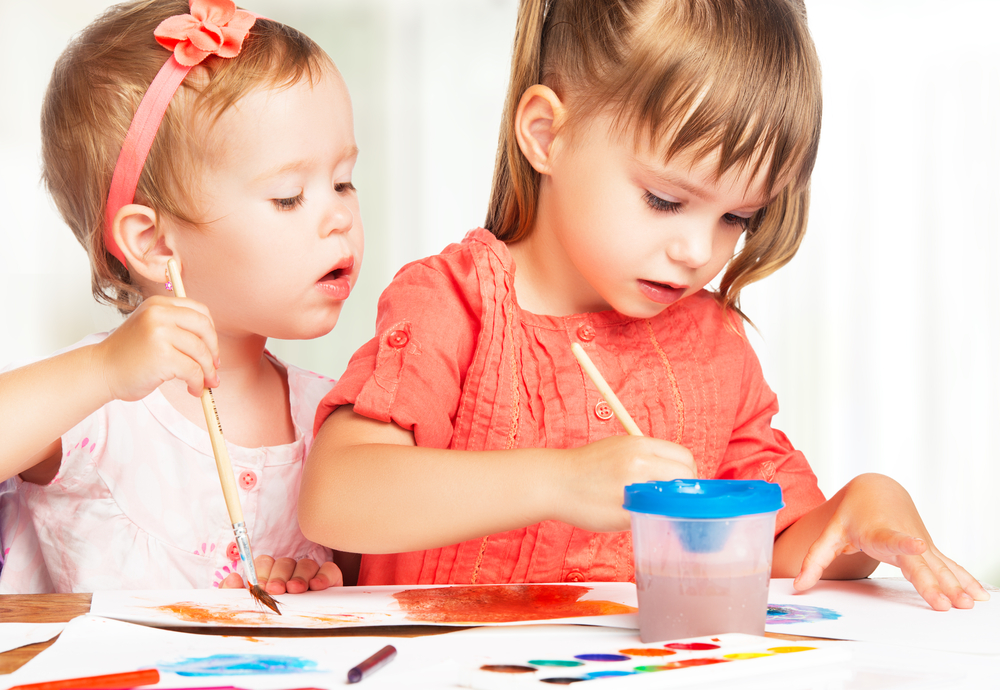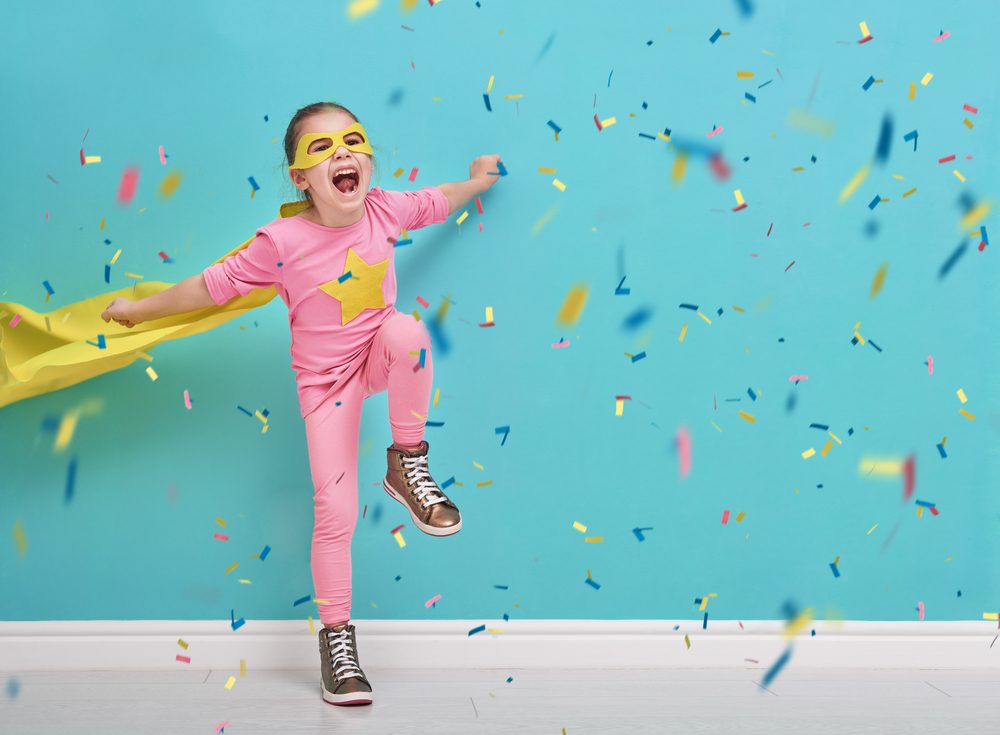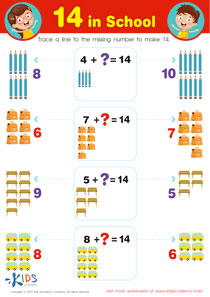K.2a Individual Development and Cultural Identity worksheets With Answers for Kindergarten
2 filtered results
Difficulty Level
Grade
Age
-
From - To
Subject
Activity
Standards
Favorites
With answer key
Interactive
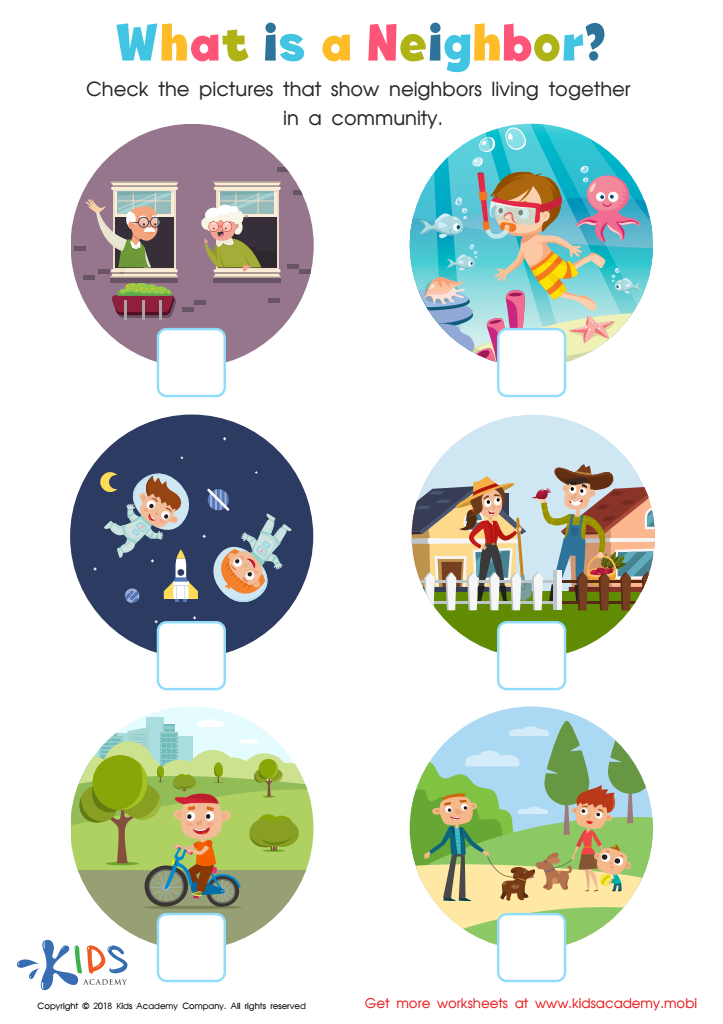

What is a neighbor Worksheet
This engaging worksheet helps students recognize neighbors and their role in a community. They'll identify pictures of people living together and understand the importance of being neighborly. Download the PDF to help reinforce the concept of community teamwork.
What is a neighbor Worksheet
Worksheet
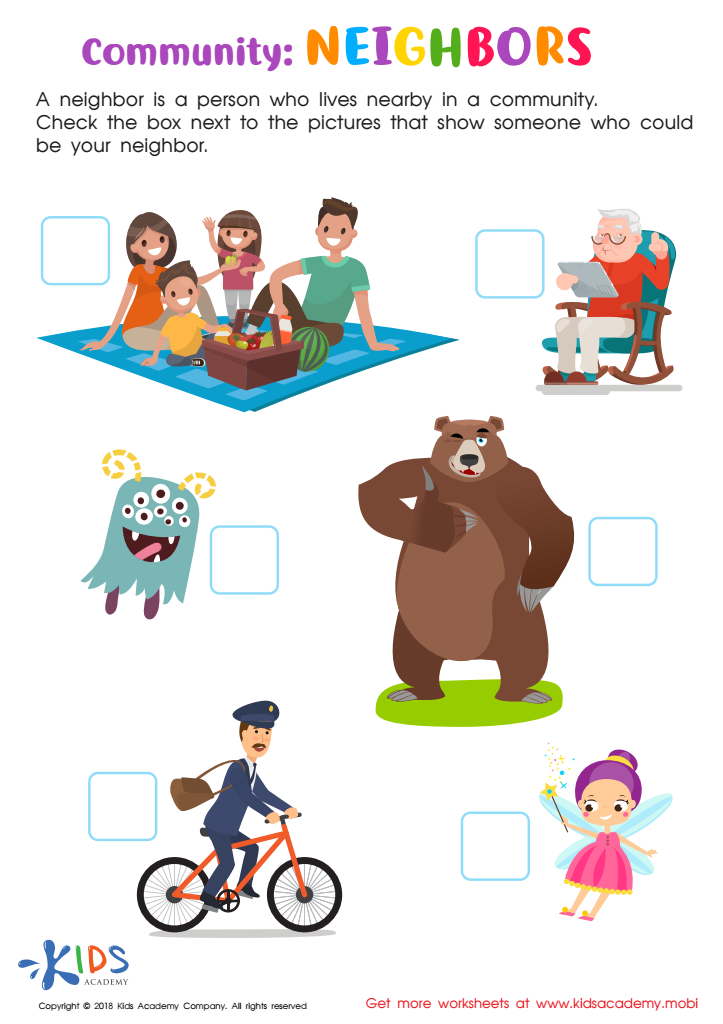

Community: Neighbors Worksheet
This free worksheet helps young learners understand who neighbors are and how they fit into their community. Have your student check out the options, decide which can and can't be neighbours and develop essential social and emotional skills. It's a fun and cheery way to learn about the social sciences!
Community: Neighbors Worksheet
Worksheet
 Assign to the classroom
Assign to the classroom

